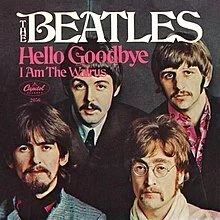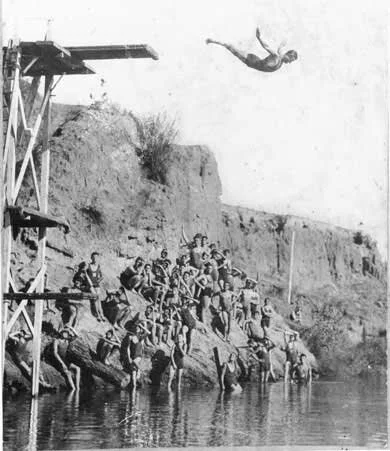The newsreader this morning hesitated over the item that talked about Victoria’s decision to instate restrictions. Obviously she was not familiar with the word instate, and neither were we. I checked to see if it was perhaps a simple error but there are a number of instances.
Read MoreThis is another problem sent to me from the real world by a troubled correspondent. It turns out to be an interesting story but I will tell you now, because I know you are wondering. It is ‘you say hello, I say goodbye’. The Beatles are in the hello camp.
Read MoreThe Ampol service stations have chosen foodary as their corporate name for their food outlets. This seems surprising and, to be frank, uncomfortable and unconvincing. This word is not an Ampol invention. Others have attempted it before them and have generally chosen the -ery suffix.
Read MoreI see what you did there! is a new way to pay a mild compliment to your interlocutor’s witticism, especially a spur of the moment witticism or one-liner. Or, posed as a question (Did you see what I did?), it is a way of highlighting that fact that you have just made a witticism — so a compliment-seeking behaviour.
Read MoreA friend, who was also once a Macquarie Dictionary editor, wrote to me with the observation that one new feature of English that has really taken off recently is to use super to mean ‘very’ as in: That’s a super interesting question!
Read MoreOne of the earliest English translations of the Bible was the King James Version which influenced English literature as well as being central to the religious belief of the day. This was a shared text, so meaningful references could be made to it in the same way that we refer to popular culture today.
Read MoreI must admit that I have not written about unique because I consider it to be a lost cause. I, too, was told when young that unique, because it means ‘one of a kind’, cannot take a comparative and superlative.
Read MoreThis expression originated in American Football, a game in which the field of play is measured in yards. The team attempting to reach the other team’s end zone does so by gaining yards of forward movement. They must gain 10 yards in four forward plays to be able to continue.
Read MoreFor some reason the expression a casual link seems to have more appeal that a causal link. I wouldn’t have thought that causal was a difficult word but newsreaders baulk at it. Some of the results are amusing.
Read MoreThis phrase, now a cliché of the pandemic , derives from C17th legal expression ex abundanti cautela, which covered a situation where a lender wanted more collateral for the loan than was, strictly speaking, required. The extra demand was made out of an abundance of caution to cover the loan.
Read MoreA spelling change can make its way haphazardly through our English. Just because we now spell the weight tonnerather than ton, we don’t necessarily want to change the spelling of the word in an idiomatic expressions like a ton of stress.
Read MoreOne of the most surprising Google Ngrams I have seen is for the word balatron. It leaps up in the 1820s, then flatlines by the 1830s, until suddenly in the 1930s it curves up again, not so high but still noticeably and gains ground post 2000.
Read MoreThe majority of writers are preserving the distinction between singular and plural (there is followed by a singular noun, there are followed by a plural noun). However, a small but significant group seem to feel that there is and there was are set phrases which can be followed by a singular or plural noun.
Read MoreThe pair was originally used for two things that always occur together, as in a clean pair of heels, a pair of rosy cheeks. Then it was used for an object comprising two identical parts, neither of which existed on their own. A pair of scissors, a pair of trousers. In addition, two people or things linked together in some way but not necessarily as a fixed set formed a pair.
Read MoreThese are the three variations that can be found to express the concept that someone is making money out of something or someone. The most acceptable of these is profit from which is listed in the OED and which is evidenced in Google Ngram.
Read MoreThe use of the term mutant in biology is neutral. It just means that there has been a change in the genome of a living thing. Such mutations occur commonly, especially in viruses, and, for the most part, are harmless in that they are unsuccessful.
Read MoreWe have been invited to consider the distinction between efficacy and efficiency in the discussion around the various vaccines that have emerged as frontrunners of late.
Read MoreThere are two expressions which are confusingly close. One is to levy a charge against someone. The other expression is to level a charge against someone.
Read MoreIt turns out that the British talk about a swallow-dive with reference to the shape that a diver makes in the air, back arched, feet together and arms outstretched, before entering the water. The resemblance to a swallow diving through the air is clear.
Read MoreI was listening to an interview in which the speaker mentioned a variegated response to a proposal. This struck me as odd. I would have expected varied, not variegated which I think of as relating to patterns of colour.
Read More


















